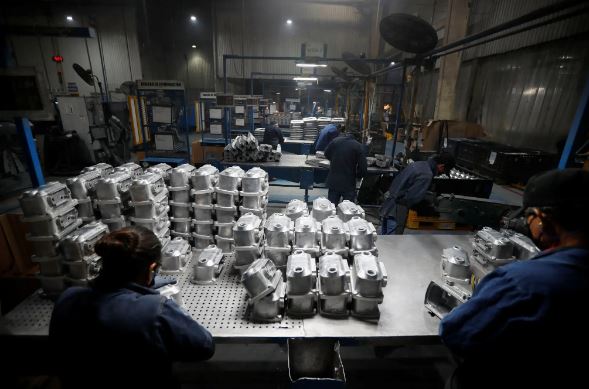Amidst the challenges posed by the pandemic, Marco Villarreal seized an opportunity that arose as global supply chains faced disruptions and shipping costs soared. Having resigned from his position as Caterpillar’s director general in Mexico in 2021, Villarreal embarked on fostering connections with companies interested in relocating their manufacturing operations from China to Mexico. His efforts bore fruit when Hisun, a Chinese manufacturer of all-terrain vehicles, enlisted his expertise to establish a $152 million manufacturing facility in Saltillo, a bustling industrial hub in northern Mexico.
According to Villarreal, foreign companies, especially those aiming to target the North American market, increasingly view Mexico as a viable alternative to China. Factors such as escalating trade tensions between the United States and China have contributed to this perception, leading to what Villarreal describes as “the stars aligning for Mexico.”
Recent data reveals a significant shift in trade dynamics, with Mexico surpassing China as America’s top source of official imports for the first time in two decades. This shift underscores the changing trade landscape influenced by heightened tensions between Washington and Beijing.
While the United States’ trade deficit with China notably narrowed last year, with imports from China dropping by 20 percent to $427.2 billion, American businesses and consumers turned to alternative sources for goods such as auto parts, shoes, toys, and raw materials. Mexico, along with Europe, South Korea, India, Canada, and Vietnam, emerged as key beneficiaries of this shift in trade patterns.
Despite the pandemic’s impact on trade, which initially saw a surge in Chinese imports as consumers stocked up on various goods, trade data now suggests a significant recalibration of America’s trading relationship with China. Quarterly imports from China in 2023 mirrored levels from a decade ago, indicating a slowdown in trade growth between the two nations compared to the rest of the world.
Economists attribute this relative decline in trade with China to the tariffs imposed during the Trump administration and maintained under President Biden. Research indicates that products subject to high tariffs experienced a decline in trade volume, while those with lower or no tariffs continued to see growth.
Furthermore, geopolitical factors such as the Russia-Ukraine conflict have further influenced trade dynamics, prompting a reevaluation of global supply chains and trade relationships. The resulting uncertainty has led to a notable slowdown in trade growth between the United States and China, with repercussions extending beyond bilateral relations.
While the reduction in trade with China may not be as sharp as bilateral data suggests, companies are increasingly diversifying their manufacturing bases, with Mexico emerging as an attractive destination due to its proximity, lower tariffs, and stable trading relationship with the United States.
Major multinational corporations like Schneider Electric have expanded their presence in Mexico, capitalizing on the country’s favorable trade conditions. Concerns over geopolitical tensions and dependency on China have prompted companies to reevaluate their manufacturing strategies, leading to a surge in foreign direct investment in Mexico.
Similarly, South Korea has experienced a surge in exports to the United States, driven by increased demand for electric vehicle components and batteries. Favorable trade agreements and the Biden administration’s climate legislation have further incentivized South Korean firms to invest in the United States, strengthening bilateral ties between the two nations.
As global trade dynamics continue to evolve amidst geopolitical uncertainties, countries like Mexico and South Korea are poised to capitalize on shifting trade patterns, presenting new opportunities for economic growth and collaboration with the United States.

